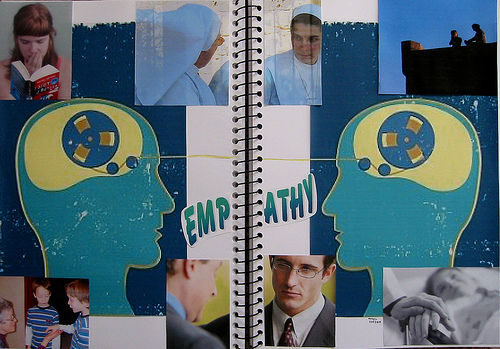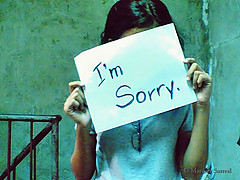Some people naturally deal with others in a kind, understanding manner.
This type person shows they are truly interested in those around them. They want to understand what others are going through, and how people are feeling really matters to them.
I wish I was more like that, but I’m not as empathetic as I should be.

Empathy Connects Us to Others
A dictionary definition of empathy is: “The capacity to recognize and share feelings, thoughts, or experiences that are being experienced by another person.”
“If you can learn a simple trick, Scout, you’ll get along a lot better with all kinds of folks. You never really understand a person until you consider things from his point of view, until you climb inside of his skin and walk around in it.” (Atticus Finch in To Kill a Mockingbird)
Broader relationship concepts such as forgiveness, sympathy, and love work hand-in-hand with our feelings of empathy. Overall, we will connect with people much more effectively when we focus to a greater degree on their needs, and less on our own.
In the book STEPS, the third step of Empathy is stated as: “Seek forgiveness and invest in good relationships.” This extends the dictionary definition of empathy to a broader focus on making amends with others and fostering effective relationships.
“Human morality is unthinkable without empathy.” (Frans de Waal)
But What If We Don’t Feel Empathetic?
 Do you find it easy to put others’ needs before your own, or apologize when you have done someone wrong?
Do you find it easy to put others’ needs before your own, or apologize when you have done someone wrong?
Many of us don’t. We hurt people too often through our words or actions, sometimes without being aware of it. But it is important to recognize when we have mistreated someone, and then do what we can to make things right.
But what if we’re not a naturally empathetic person?
We need to make amends anyway.
Because it’s the right thing to do. And because it’s what we need to do, for our own well-being and for that of the other person.
“It’s not a person’s mistakes which define them – it’s the way they make amends.” (Freya North)
Unfortunately, empathy is a weakness for me. I tend to focus on “being right” too often, and sometimes I don’t pay enough attention to people’s feelings or recognize when I have been hurtful.
I’ve still got a lot to learn.
Learning to Make Amends
 Making amends doesn’t have to be the torture we sometimes envision it to be.
Making amends doesn’t have to be the torture we sometimes envision it to be.
When we admit a wrongdoing and say we’re sorry, most people understand. Making amends is harder in our minds than in practice, and putting negative situations behind us takes a weight off our shoulders.
Making amends is more than “I’m sorry,” and the purpose goes beyond “getting something off our chest.” We do it to let go, once and for all, of a wrong we have done to someone else and to do what we can to set things right with them.
“A good apology has three parts:
- I’m sorry.
- It’s my fault.
- What can I do to make it right?”
(Unknown source)
If learning to make amends seems difficult, we can start small and look for opportunities to say “I’m sorry” for little things we do. Most of us probably do something every day that warrants an apology of some sort, so we have lots of opportunities to learn.
Perhaps you are blessed by being empathetic, and maybe seeking forgiveness comes naturally to you. Or maybe you’re not that way.
Either way, it’s still the right thing to do.
Question: When is the last time you looked someone in the eye and said, “I’m sorry.”
Action: Think of someone you will connect with at a deeper level than you have before.
Photo by The Shopping Sherpa  Photo by Leyram Odacrem
Photo by Leyram Odacrem  Photo by hang_in_there
Photo by hang_in_there  Photo by p-a-t-r-i-c-k
Photo by p-a-t-r-i-c-k 

